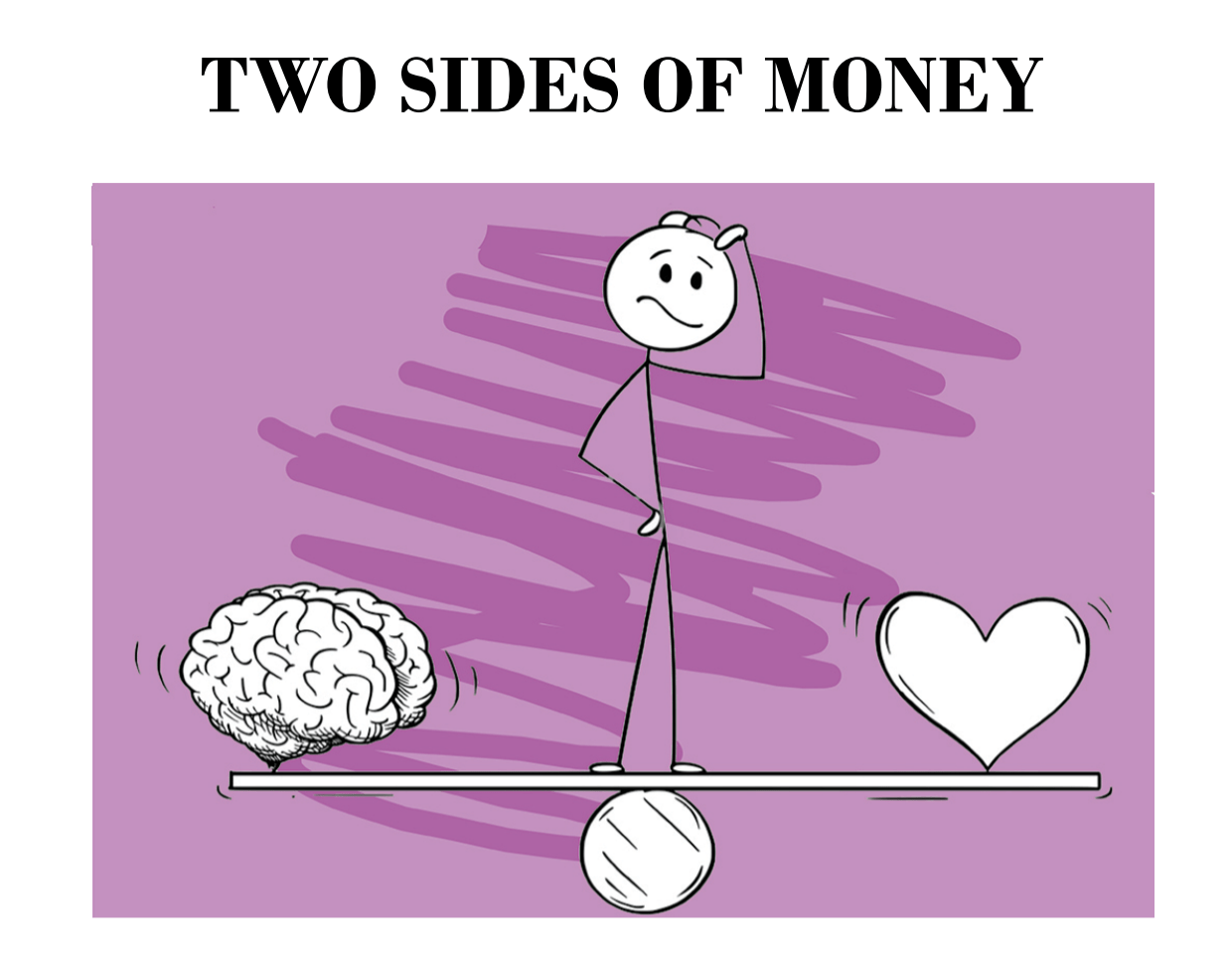Executive Forum Silicon Valley invited Emily Scott, a thought partner working with her clients to help unpack their money stories to improve their personal and professional financial decision-making, communications, and relationships. With no assets under management, Emily’s sole skin in the game is her clients’ peace of mind and clarity in discovering their money mindset, exploring their legacy, and determining their philanthropy. Emily works with financial advisors, and other professionals to help their clients understand the role of money in all aspects of their lives.
Identifying one’s own feelings about money
Ms. Scott started with a self assessment on a scale from 1- 10, to see the intensity of one’s feeling about one’s money, more or less categorized into four types of emotions:
- Grateful, secure, tranquil, enough, amazed, thankful
- Anxious, concerned, nervous, uncertain, uneasy, stressed, worried
- Vulnerable, fragile, miserly
- Scared, frightened, paralyzed, terrified, f*cked
When it comes to decision making the personal side of money is more important than the technical side
There are two sides to money, the technical and personal sides. Both sides are equally important and complex, but it is the personal side that drives decision-making, said Emily.
The technical side includes aspects such as taxed, investments, estate planning, cash flow, risk management.
The personal side encompasses relationships, emotions, hopes and dreams, self-esteem, sense of well-being.

Financial EQ affects decisions, communications & relationships
Aristotle said: “Knowing yourself is the beginning of all wisdom.”
Everyone’s relationship with money starts with one’s core beliefs about money. Our money story starts early in our lives by the implicit and explicit messages we receive on a daily basis. This story comes from our homes, our cultures, gender, media, and more. For most, we are taught to not talk about money and any feelings we have are deeply embedded and manifest in ways we don’t even realize.
The source of all money-related thoughts and behaviors derives from one’s core beliefs.
Thoughts and behaviors around money lead to outcomes and consequences.
Better outcomes with money depend on changing one’s beliefs, thoughts, behaviors
If you are not happy with your money situation, you need to start to adopt NEW beliefs, as shown in the below example of a “personal wealth mission statement”:
- “I want my money to represent who I want to be as a human being, with my knowledge and emotions aligned to maintain my security, flexibility, freedom, and generosity.”
Several things need to happen in order to achieve better outcomes:
- Recognize beliefs, thoughts, and behaviors that are detrimental to your new goals;
- Rethink and reframe new beliefs and thoughts that are intended for better outcomes; Revisit these beliefs, to get clarity and confidence;
- Align intentionality with developing new habits and routines for reaching your new goals;
- Getting your subconscious (your “computer”) to work for you, until your goals are accomplished.
To get a personal consultation about changing your relationship with money, please contact Emily Scott’s email: emily@emilyscottand.com or call her at: (415) 609-1900.
===============================================================
At Executive Forums Silicon Valley, selected business owners and leaders work together to gain clarity, insight and accountability to ignite their leadership engines, grow their businesses and improve their lives. If you are interested in learning more about Business Owner Advisory Boards, Entrepreneurial Operating System (EOS), Stages of Growth, Value Builder System or becoming a member at Executive Forum Silicon Valley, please contact Glenn Perkins: gperkins@executiveforums.com or call 408-901-0321. For more information visit http://www.execforumssv.com/.

